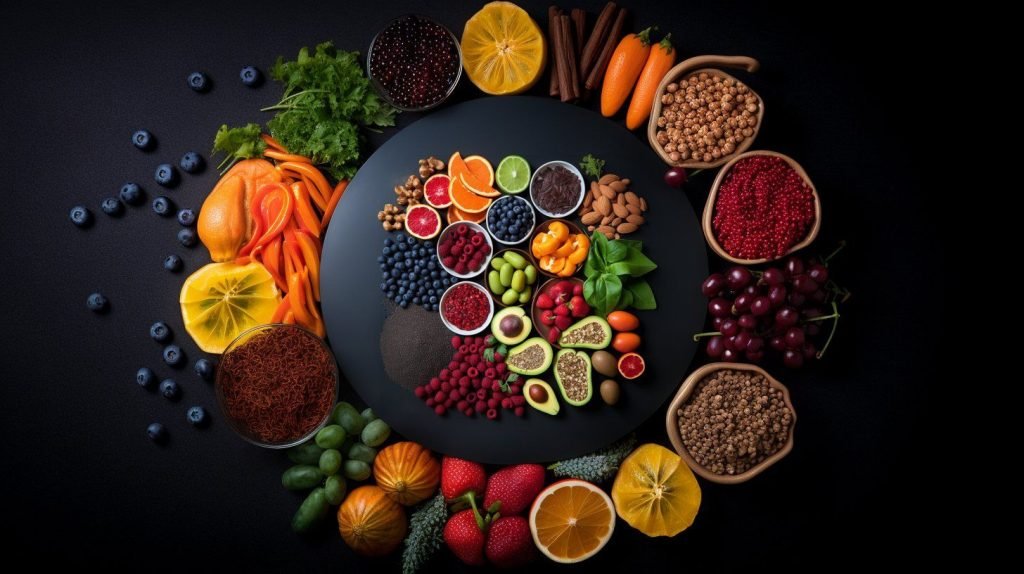Introduction
In the pursuit of a healthier and more vibrant life, the power of superfoods cannot be underestimated. These incredible gifts from nature have the potential to transform your well-being and optimize your health. With their exceptional nutrient profiles and numerous health benefits, incorporating superfoods into your daily diet can be a game-changer. Let’s delve into the wonders of superfoods and explore how they can nourish your body for optimal health.
How do superfoods help your body?
Superfoods are nutritional powerhouses that offer a wide array of benefits to support your body’s functions. Let’s take a closer look at how they positively impact your health:
Strengthening Immunity
Superfoods such as elderberries, garlic, and turmeric are rich in immune-boosting properties, helping your body ward off infections and stay resilient.
Enhancing Brain Function
Blueberries, avocados, and walnuts contain antioxidants and healthy fats that promote brain health, improving memory and cognitive function.
Supporting Heart Health
Foods like salmon, chia seeds, and almonds are excellent sources of heart-healthy omega-3 fatty acids, reducing inflammation and supporting cardiovascular well-being.
Aiding Digestion
Superfoods like yogurt, kefir, and ginger are rich in probiotics and compounds that soothe the digestive system, promoting gut health.
Managing Weight
Leafy greens, quinoa, and lean proteins are nutrient-dense superfoods that can help you feel fuller for longer, aiding in weight management.
What are 25 superfoods?
Spinach
A nutrient powerhouse packed with iron and vitamins A and K.
Blueberries
Rich in antioxidants and vitamin C, supporting immune function.
Salmon
A great source of omega-3 fatty acids for heart and brain health.
Quinoa
High in protein, fiber, and essential amino acids.
Chia Seeds
Abundant in omega-3s, fiber, and protein.
Broccoli
A cruciferous vegetable rich in vitamins and minerals.
Turmeric
Contains curcumin, a potent anti-inflammatory compound.
Almonds
A good source of healthy fats, vitamin E, and magnesium.
Greek Yogurt
High in protein and probiotics for gut health.
Avocado
Rich in monounsaturated fats and potassium.
Sweet Potatoes
Packed with vitamins A and C, beneficial for skin health.
Kale
A superfood with vitamins A, K, and C, and iron.
Acai Berries
Loaded with antioxidants and anthocyanins.
Garlic
Known for its immune-boosting and anti-inflammatory properties.
Lentils
High in protein, fiber, and essential minerals.
Green Tea
Contains catechins, potent antioxidants.
Oranges
A vitamin C-rich fruit supporting immunity.
Walnuts
A source of omega-3s and antioxidants.
Beets
Contain nitrates, promoting healthy blood flow.
Eggs
A complete protein source with various nutrients.
Ginger
Known for its digestive benefits and anti-inflammatory properties.
Cabbage
Rich in vitamins K and C, and antioxidants.
Pomegranate
Packed with antioxidants and anti-inflammatory compounds.
Oats
High in fiber and beneficial for heart health.
Cacao
A source of flavonoids with potential cardiovascular benefits.
How many superfoods should you eat a day?
While incorporating a variety of superfoods into your diet is beneficial, there is no strict rule on the exact number you should consume daily. The key is to create a balanced diet that includes a mix of nutrient-dense foods, including superfoods. Aim to consume at least 3 to 5 different superfoods each day to ensure you receive a broad range of nutrients and health benefits. Remember that a well-rounded diet, paired with regular exercise and a healthy lifestyle, is the foundation for optimal health.
How do antioxidants and superfoods affect your health?
Antioxidants, abundant in many superfoods, play a crucial role in protecting your body from harmful molecules called free radicals. Free radicals can cause oxidative stress, leading to cell damage and increasing the risk of chronic diseases like cancer and heart disease. Antioxidants neutralize these free radicals, preventing or reducing their harmful effects.
Superfoods, being rich in antioxidants, offer significant health benefits. They help combat inflammation, support the immune system, and protect cells from damage. By incorporating antioxidant-rich superfoods into your diet, you can promote longevity and overall well-being.
Conclusion
Superfoods hold the potential to be your body’s best allies in achieving optimal health. From boosting immunity and supporting heart health to enhancing brain function and aiding digestion, these nutritional powerhouses offer a host of benefits. By embracing a balanced diet that includes a variety of superfoods, you can nourish your body and unleash its full potential. So, why wait? Start your journey to a healthier, more vibrant life today with the power of superfoods.
If you found this article inspiring and informative, share it with your friends and family. Let’s spread the knowledge of superfoods and their incredible health benefits together. If you have any questions or thoughts, leave a comment below, and let’s engage in a conversation to support each other on our wellness journey.
